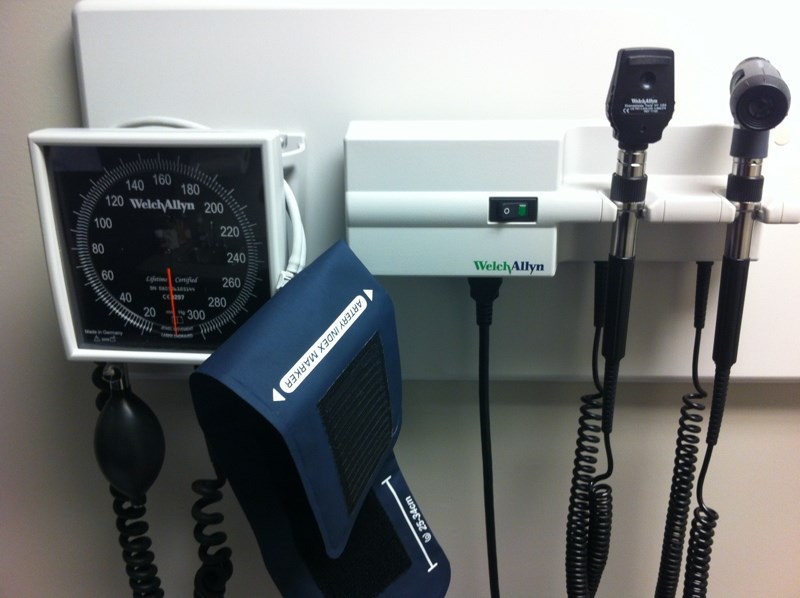People suffering because of a surgery that was cancelled to make room for a potential surge in COVID-19 cases can contact their surgeons to be re-evaluated, says the CEO of Island Health.
“If their condition has declined or they’re suffering in a new way as a result of this new wait, please contact your family physician or your surgeon’s office,” said Kathy MacNeil. “We have the ability to reassess your clinical signs and symptoms and we do have the ability to do urgent surgical cases.”
MacNeil said despite the cancellations, urgent and emergency surgeries continue to be performed in Island Health hospitals, at about 30 per cent of pre-COVID-19 levels.
As well, planning is underway to reschedule some of those surgeries in two-week increments starting in May, while reserving enough vacant hospital beds for possible surges in COVID-19 cases.
“We are planning in a very controlled way to ramp those services up,” said MacNeil.
MacNeil, along with Island Health chief medical health officer Dr. Richard Stanwick and MLAs Mitzi Dean and Sonia Furstenau, hosted an hour-long virtual town hall on Tuesday night that attracted 13,000 people.
Participants asked questions including why more widespread testing for the virus hasn’t been done, why the hometowns of the sick aren’t named, the role of patients in pandemic planning, the start-up date for cancelled surgeries, how the virus is spread on various surfaces, the science behind extreme physical-distancing advice, the repurposing of masks, and what “holding the line” really means.
Stanwick said holding the line means maintaining the gains made, modifying the restrictions without losing the benefits accrued.
Vancouver Island has flattened the curve of COVID-19 cases, which is “just amazing —that’s the only way to describe it,” said Stanwick, pointing to the low number of people in a hospital system that health officials feared might become overwhelmed, based on the experience in Italy and Hubei, China.
“We’re so lucky — we have five people in all the hospitals across the Island that have a COVID-19 diagnosis,” said MacNeil. “That’s not the scenario we had planned for. That is a direct result of the work that people are doing in the community.”
Asked why COVID-19 positive patients aren’t moved to designated quarantine facilities instead of the Island’s main hospitals, MacNeil said people with the virus can decline quickly and need specialized critical-care equipment, such as ventilators and renal dialysis, as well as highly trained therapists and nurses, and need to be in fully equipped acute-care centres.
MacNeil was asked whether the health authority is re-using surgical masks and N95 masks. MacNeil said Island Health learned from other jurisdictions that the N95 mask — which comes with a HEPA filter that locks out particles — can be repurposed in a specific process approved by Health Canada.
“Those reprocessed masks would be equal to a new mask that we would buy that Health Canada would certify,” said MacNeil. “We haven’t used those reprocessed masks yet, but it’s a just-in-case. And so we have collected them, we’ve started that reprocessing process so that we have a supply, should we need that.”
New personal protective equipment is routinely coming each week, “but we just never know,” said MacNeil.
On testing for the disease, provincial health officer Dr. Bonnie Henry recently announced testing will now be available to everyone with symptoms. Stanwick was asked to explain why testing had been limited to the most vulnerable.
Stanwick said public-health officials had to focus on the most sick when cases began to peak, but he also noted that the Island’s capacity for testing is dwarfed by that of the Lower Mainland.
While Island Health can process about 460 tests in a day, the Lower Mainland can perform 9,000 in the same period, said Stanwick. “So we have been somewhat selective in who gets the testing.”
Serological tests — measuring the presence of antibodies or proteins present in the blood when the body is responding to a specific infection — should be coming soon and will help determine the number of people who have had COVID-19 and what percentage of the population has immunity, said Stanwick.
Asked how long the virus lives on various surfaces, Stanwick noted that soap and water works well in breaking down the fatty coating on the virus, as well as alcohol-based sanitizer when soap isn’t available.
Stanwick said of all the respiratory illnesses he has seen, including SARS and H1N1, nothing has rivalled COVID-19.
“This is a career-defining event, a community-defining event,” said Stanwick.
Similar town halls have been held this week by Vancouver Coastal Health and Fraser Health.
Northern Health hosted a town hall on Wednesday night featuring MLAs Doug Donaldson and Mike Bernier and health officer Dr. Raina Fumerton.
Thursday, a final town hall will be held by Interior Health with MLAs Katrine Conroy and Norm Letnick and health officer Dr. Sue Pollock.



